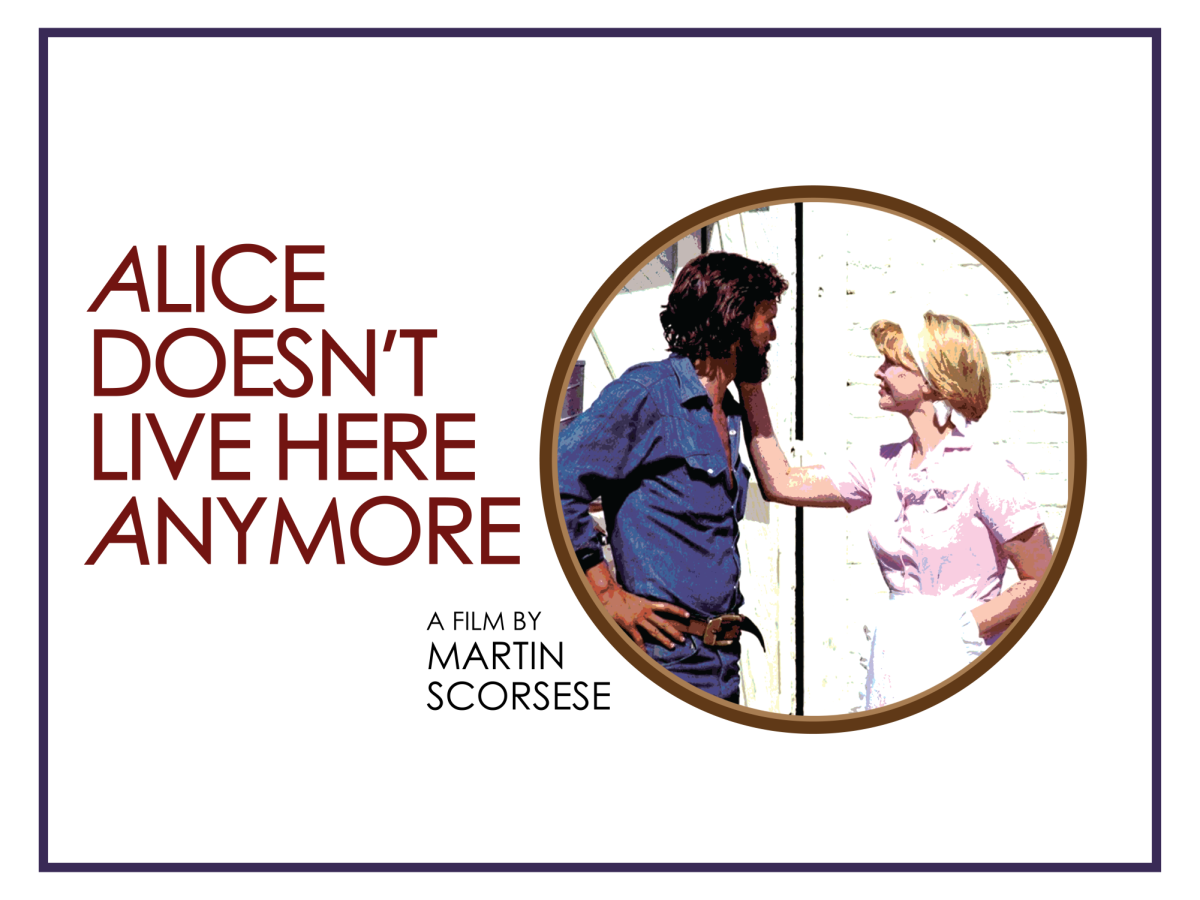
GRAPHIC: STEPHANIE SAVELA ’25/THE HAWK
“Alice Doesn’t Live Here Anymore,” released in 1974, is Martin Scorsese’s fourth feature-length and first Hollywood project, sandwiched between “Mean Streets” and “Taxi Driver,” two films known for their violence and grittiness. “Alice” is a feminist feature that has both.
The film stars Ellen Burstyn as Alice, a stay-at-home mother in a small town in New Mexico who is in an abusive marriage where her husband Don, played by Billy Bush, verbally and physically torments Alice and their preteen son, Tommy, played by Alfred Lutter. When Don unexpectedly dies, Alice decides to take Tommy back to her hometown of Monterey, California. However, money and relationship problems strand the two in Arizona, where she takes up waitressing at a diner and finds the prospect of love with regular customer, David, played by Kris Kristofferson.
Slowly, Alice discovers that perhaps being married and settling down wasn’t her dream after all, that maybe that “dream” was what prevented her from following her true ambitions: becoming a singer. The film captures the pursuit of the American Dream through a feminist lens, and it does so with nuance, without sacrificing the complexity or vices of its title character.
“Alice” is about how expectations can prevent people from chasing their dreams. In one scene, Alice confesses to her colleague, Flo, in the bathroom at work that she loved Don but that maybe she only needed him to feel safe because that’s what American society was telling her: Just get married, and you’ll be alright. However, being on her own is still a gigantic challenge for Alice. The moments she shares with Tommy are sweet, fun and hilarious, but she also doesn’t know how to discipline him the proper amount — nor will she accept when David over-disciplines him by using physical force. She is in a constant state of chaos, learning how to be a parent and how to be independent all over again.
Overall, this message is where the heart of the film lies. “Alice” shows that feminism isn’t necessarily about being the toughest or the bravest or the strongest. It’s about perseverance, and the idea that sometimes, you do need help — but never at the cost of your voice.